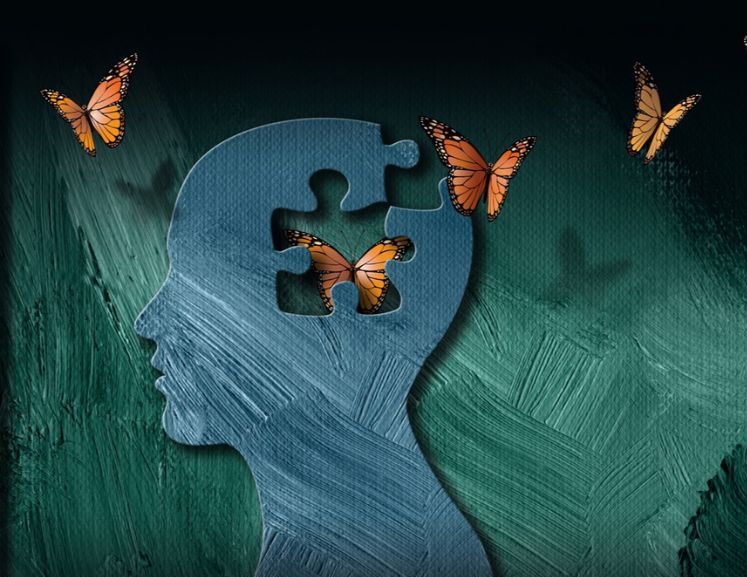Asynchronous Continuing Education
Our asynchronous courses are sold a la cart or as part of our membership. With the flexibility and accessibility of our Continuing Education platform, anyone can continue their education, stay up to date on the latest research findings and emerging trends while developing new skills designed to inspire and help you flourish in your work.
New Courses are being added all the time!

Dissociation 101
An orientation for clinicians about the standard of care required to treat those living with complex trauma and dissociative disorders.

Rwanda: A Template for Trauma-Informed Governance
During a period of deep division in many parts of the world, Rwanda provides a template for the application of trauma-informed principles to not only recovering from mass tragedy, but thriving.

DBT Skills - A Five Module Series
Dialectical Behavior Therapy (DBT) is renowned for its evidence-based approach and versatility across diverse populations. Gain insights into DBT's origins, its effectiveness in treating personality disorders, and its broader applications, with in-depth exploration of each model component.

Introduction to Perinatal Mental Health
Perinatal health is the focus on mental health during the pregnancy and postpartum periods.

Traumatic Pregnancy and Mental Health
While pregnancy is often celebrated as a joyous milestone, it can also lead to traumatic experiences. Clinicians must recognize the potential for birth trauma, pregnancy loss, and infertility when supporting clients' reproductive health.

Working with Trauma and Perinatal Mental Health
Trauma and post-traumatic stress disorder (PTSD) are complex experiences and disorders that can impact individuals of diverse ages, backgrounds, and life stages. Pregnancy represents a significant developmental milestone for both the parent and the developing fetus. During this transformative period, traumatic reminders, new symptoms, and past memories may intensify or resurface, presenting unique challenges for expectant parents.

The Treatment of PTSD in Older Adults
Considering that 90% of older adults have experienced at least one traumatic event, having strategies to help these older adults is imperative.

Culture and the Aging Population
Cultural factors can become more instrumental in a person’s life as they age. Therapists who develop a deeper understanding of the influence of culture on aging can better support their older adult clients.

Assessment & Treatment of Hoarding Disorder in Older Adults
Hoarding behavior in older adults presents special challenges for practitioners and family members. Careful assessment and treatment planning is essential in treating the disorder.

Managing Challenging Behaviors in Older Adults
As adults age and their brains change, behaviors can change as well. Dealing with challenging behaviors in the aging population can be especially difficult for professionals and caregivers to understand and manage..

Motivational Interviewing with Older Adults
It's never too late for change, and older adults possess remarkable capacity for growth throughout life's journey.

Supporting LGBTQ+ Elders
As the LGBTQ+ population continues to age, it's crucial for clinicians to understand the unique challenges and experiences faced by this community in later life. Empower yourself to make a meaningful difference in the lives of LGBTQ+ elders.

Cultural and Ethical Considerations in the Mistreatment of Elders
Effectively recognizing and addressing signs of mistreatment of one of our most vulnerable populations allows clinicians to provide appropriate support and interventions to prevent further harm. Understanding elder abuse enables therapists to advocate for their clients' rights and promote elder dignity and safety within their communities.

An Overview Of Grief and Loss
Grief is the natural emotional response to the death of someone close, a serious illness, a divorce or other significant losses. Our reactions are unique and individual; none of us experiences grief in the same way.

Diagnosis And Treatment of Prolonged Grief Diagnosis In DSM-5-TR & Ethical Considerations
Conceptualizing a client's grief and loss is a crucial first step for practitioners before intervening effectively. With the emergence of the new prolonged grief diagnosis in DSM-5-TR, it's essential for mental health professionals to stay informed and equipped to diagnose and treat this condition accurately.

The Ethics of Duty to Warn
Encountering a homicidal client poses a significant challenge for clinicians, requiring them to carefully balance client confidentiality with the duty to protect potential victims.

Ethical Implications of Social Media Use
Equip yourself with the knowledge and skills needed to navigate the ethical complexities of social media with confidence and professionalism.

Engaging in Effective Termination and Avoiding Abandonment
Explore the nuances of ethical responsibilities, navigate complex feelings, and learn practical strategies for ethical termination practices while safeguarding against abandonment in your mental health practice.

Mindfulness-Based Approaches for Suicide Prevention
The knowledge and skills needed to make a positive impact in suicide intervention. By embracing mindfulness-based approaches, you can enhance your ability to support individuals in crisis and contribute to saving lives.

Ethics and Laws Regarding Mandated Reporting: Child and Elder Maltreatment
Fulfill your ethical and legal responsibilities as a mandated reporter by mastering key concepts such as when to report, how to gather relevant information, and the essential components of a comprehensive report.
Optional Oregon add on available
Courses Coming Soon...
- Diagnosis and Treatment of Prolonged Grief
- Ethics of Social Media
- Ethics: Duty to Warn
- DBT Series
- and more...
Become a Member!
A monthly subscription to ITTC’s Professional Learning Community Includes:
- Unlimited Access to asynchronous courses and workshops with more being added all the time.
- Access to the Learning Community where you can connect with colleagues worldwide.
- Discounts on our live events like trainings, retreats, and ITTC Trauma Summits.
All courses live and asynchronous offer continuing education credits.
Join KALOS!HOURS
Monday - Friday: 9:00am -5:00pm*
Closures: New Years Day, Memorial Day, Juneteenth, Fourth of July, Labor Day, Thanksgiving, Christmas.
© 2023 Integrative Trauma Treatment Center. Privacy Policy.

